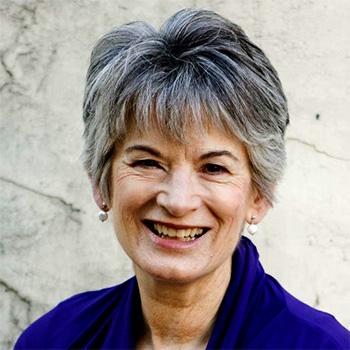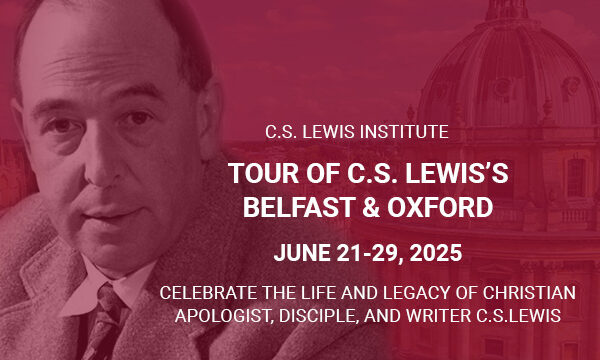Back to series
 I had never heard of Corrie ten Boom, but it seemed to me that her name was met with a kind of reverence among the group, as if she were a legend in her own lifetime. I was intrigued and listened with interest as several missionaries volunteered experiences they had shared with her. From these reports and information gleaned in the years to come, I was able to assemble a picture of this remarkable Dutch missionary evangelist, and from the first, I felt drawn to her.
I had never heard of Corrie ten Boom, but it seemed to me that her name was met with a kind of reverence among the group, as if she were a legend in her own lifetime. I was intrigued and listened with interest as several missionaries volunteered experiences they had shared with her. From these reports and information gleaned in the years to come, I was able to assemble a picture of this remarkable Dutch missionary evangelist, and from the first, I felt drawn to her.
 In 1924, at the age of 32, Corrie became Holland’s first woman licensed as a watchmaker. She combined work in the family business with her ever-increasing clubs for young boys and girls and the constant hospitality of the Beje. Father ten Boom was held in deep respect by his fellow Haarlemmers, and many visitors came to see the patriarchal figure with the long white beard.
In 1924, at the age of 32, Corrie became Holland’s first woman licensed as a watchmaker. She combined work in the family business with her ever-increasing clubs for young boys and girls and the constant hospitality of the Beje. Father ten Boom was held in deep respect by his fellow Haarlemmers, and many visitors came to see the patriarchal figure with the long white beard.



Profiles In Faith
Corrie ten Boom (1892-1983)
Dutch Missionary Evangelist
Click here to open a Print - Friendly PDF
It was during an evening prayer meeting in tropical East Africa that I first heard her name. The year was 1966, and I was in my early twenties, working as a volunteer short-term missionary in Kenya. I had no idea that this prayer meeting in a suburb of Nairobi would be the beginning of a remarkable journey with a truly remarkable woman.
Dozens of missionaries filled the warm living room that evening. One by one, several of them described their work and asked for prayer. Near the front of the room a middle-aged lady raised her hand and stood up. “I would like to ask for prayer for Corrie ten Boom,” she said. “She is in her mid-seventies now and has recently spent many months in Uganda. Her doctor had prescribed a sabbatical rest for her. But now she has resumed her world journeys.”
 I had never heard of Corrie ten Boom, but it seemed to me that her name was met with a kind of reverence among the group, as if she were a legend in her own lifetime. I was intrigued and listened with interest as several missionaries volunteered experiences they had shared with her. From these reports and information gleaned in the years to come, I was able to assemble a picture of this remarkable Dutch missionary evangelist, and from the first, I felt drawn to her.
I had never heard of Corrie ten Boom, but it seemed to me that her name was met with a kind of reverence among the group, as if she were a legend in her own lifetime. I was intrigued and listened with interest as several missionaries volunteered experiences they had shared with her. From these reports and information gleaned in the years to come, I was able to assemble a picture of this remarkable Dutch missionary evangelist, and from the first, I felt drawn to her.Cornelia ten Boom, known as “Corrie,” was born in Amsterdam, the Netherlands, on April 15, 1892, the fourth and youngest child of watchmaker Casper ten Boom and his wife, Cornelia ten Boom-Luitingh. While Corrie was still an infant, her father inherited the family watch shop in the city of Haarlem, a fifteenth-century, narrow, three-story house known to many Haarlemmers who crossed its hospitable threshold, as “the Beje” (pronounced Bay-yay).
Corrie became an active believer at the age of five in the Dutch Reformed Church. The prayers of the Ten Boom family regularly included intercession for the peace of Jerusalem. Indeed, they had a particular love for the Jewish people.
After the death of her mother in 1921 and the marriages of her sister Nollie and brother Willem, Corrie and her elder sister Betsie remained in the family home with their father Casper. After the First World War and all through the 1930s, they cared for many foster children. Betsie and Corrie also began several clubs for young people, always including a Bible message and explanation of how to become a Christian.
 In 1924, at the age of 32, Corrie became Holland’s first woman licensed as a watchmaker. She combined work in the family business with her ever-increasing clubs for young boys and girls and the constant hospitality of the Beje. Father ten Boom was held in deep respect by his fellow Haarlemmers, and many visitors came to see the patriarchal figure with the long white beard.
In 1924, at the age of 32, Corrie became Holland’s first woman licensed as a watchmaker. She combined work in the family business with her ever-increasing clubs for young boys and girls and the constant hospitality of the Beje. Father ten Boom was held in deep respect by his fellow Haarlemmers, and many visitors came to see the patriarchal figure with the long white beard.On May 10, 1940, the Nazis invaded Holland, beginning an occupation that would last five years. During that time, the Beje became one of many centers of unofficial underground work where Father, Corrie, and Betsie did all they could to help Jewish people to find safe housing. As their involvement increased, it was decided to build a secret room where Jewish guests could hide during a possible Nazi raid. Eight months after the completion of the hiding place, Nazis carried out a raid shortly after 5.p.m. on February 28, 1944. Four Jewish guests and two underground workers were able to reach the hiding place and remain in safety until they were freed after about two days.
Father, Betsie, and Corrie were arrested and taken to prison. Father ten Boom died in prison after only ten days. Betsie and Corrie were imprisoned first at Vught Concentration Camp in the Netherlands and then at Ravensbruck Concentration Camp in Germany. In December 1944, Betsie (whose health had never been robust) died from starvation.
Corrie was inexplicably released from Ravensbruck shortly after Betsie’s death, and she returned to Holland. As soon as the war ended, she traveled the world for most of the remainder of her long life. Just before Betsie had died, she said to Corrie:
When we are set free from this terrible place—and we
will be freed, Corrie, before the new year—we must go
over the world and tell everyone who will listen what
we have proved to be true in this terrible place: that the
love of God is stronger than the deepest darkness. They
will believe us because we were here.
In August 1968, the summer after my return to England from that short-term assignment in Africa, a friend invited me to go with her to a mission conference comprised of Dutch and English young people to be held in north central England. When I learned that Corrie ten Boom was to be one of the speakers, I recalled my interest in her story and soon found myself part of the five-day conference.
When Corrie’s turn came to speak, my first impression of this thoroughly Dutch lady was that at 76 years of age she looked strong, of sturdy build, and possessed a chin that can be well-described as determined. And characteristic of the Dutch, her conference messages were delivered with no sentiment or emotionalism.
“There is no pit so deep, the love of God is not deeper still,” she said, speaking of her imprisonment in concentration camp.
We do not know when the Lord Jesus will
return, but we do not know of one moment
when he may not return. Are you ready? Have
you forgiven your enemies? There was a time
when I could not forgive those who had been
so cruel to me and to my dying sister, Betsie. But
God has taught me how to forgive.
The certainty of the return of Christ was a strong theme in Corrie’s messages. She saw it as a spur to godly discipleship:
The Lord Jesus has promised to return. And He will. It
may be very soon. In the meantime, are you taking hold
of all the riches God has given us in Jesus Christ? We so
often live like paupers when we are really children of the
King of kings.
 As the conference progressed, I noticed something in Corrie that went beyond the straightforward, frank, and honest approach I had already noted in the Dutch participants. Her words carried an impressive authority and were delivered with unusual energy. I felt rather intimidated by her powerful personality. But at the same time, observing her interaction with the young people, I saw her love for them and their loving and interested response to her. She extended the same love with the same results to the conference leaders, the cooks, cleaners, and gardeners as well. And I could not help noticing that every time Corrie ten Boom entered a room or took part in conversations, she was immediately the center of attention. It did not seem that she sought this; it simply happened.
As the conference progressed, I noticed something in Corrie that went beyond the straightforward, frank, and honest approach I had already noted in the Dutch participants. Her words carried an impressive authority and were delivered with unusual energy. I felt rather intimidated by her powerful personality. But at the same time, observing her interaction with the young people, I saw her love for them and their loving and interested response to her. She extended the same love with the same results to the conference leaders, the cooks, cleaners, and gardeners as well. And I could not help noticing that every time Corrie ten Boom entered a room or took part in conversations, she was immediately the center of attention. It did not seem that she sought this; it simply happened.
Just before the conference drew to its close, the main speaker, Brother Andrew, the Dutch missionary behind the Iron Curtain whose book God’s Smuggler had been released the previous year, told the group that he needed help in Holland from somebody whose original language was English. A large amount of correspondence in English arrived weekly at his ministry headquarters in Holland. I volunteered to help and thus began a stay of more than seven years in the Netherlands.
“One of the first things I want you to do,” Brother Andrew told me upon my arrival in the Netherlands, “is to help my friend Corrie ten Boom.”
He told me that the American authors John and Elizabeth Sherrill were writing a book with Corrie. It was not yet named, but work had begun. Hours of interviews had been audio-taped, and a typist was needed to transcribe them.
“I have volunteered you,” said Brother Andrew. And so my first personal encounter with Corrie ten Boom came about. She was usually absent from her home country on world journeys—her favorite title of the several ascribed to her by her friends was “Tramp for the Lord.” But she spent several months in Holland during that autumn of 1968, mainly for the purpose of working on the new book. Her temporary residence was a borrowed apartment in the town of Soestdijk, about a 45-minute drive from Brother Andrew’s mission base.
As I traveled eastwards to join Corrie for that first day of work, I looked forward to what promised to be an interesting undertaking—but I also felt rather apprehensive. This was the lady whose powerful presence I had found rather overwhelming at the mission conference in England just two months before. Would I be able to complete this assignment in a satisfactory way? I thought, There must be many others more capable than I of helping with the production of a book.
However, when I met her, my fears were put to rest quickly by the warm welcome I received. Blue, discerning eyes looked into my brown ones. I noted the healthy, olive-toned skin and the silver and gray hair arranged around a doughnut-shaped roll on the crown
of her head.
“Come in, child,” she said, “and let’s have a talk. The Sherrills will be arriving soon.” During the few minutes we had together before the arrival of her American friends, I was immediately drawn into Corrie’s world. We drank a cup of coffee, ate cookies made with butter, and took each other in.
“I am so glad you are going to help us with this book,” she said, giving me the sense that I was somehow a vital part of its birth. In the years to come, I was to witness countless occasions when Corrie exercised her gift of making a person feel needed and valuable.
The Hiding Place was published in 1971, and although she wrote many books before and after, it became her most widely read title. In 1975, the book was produced as a full-length film.
Seven years after I began my work in Holland, Corrie asked me to become her traveling companion. With Brother Andrew’s blessing, we started our work together on April 1, 1976, the month of her 84th birthday. Her energy and passion for her work amazed me. During the first seven months we worked in Switzerland, Canada, Hawaii, New York, Massachusetts, North Carolina, Virginia, Tennessee, Oklahoma, Texas, Iowa, Illinois, Florida, and California followed by three months in Holland to work on several books and to gain U.S. resident alien status whereby she could “stay put” as she often described her longing to conserve her strength and do more writing. On February 28, 1977, at the age of nearly 85, she moved into a rented house in California after 33 years of travel and work in 64 countries. But she would not hear of the word “retirement.” She disliked rest. During the next eighteen months she wrote several books, conducted telephone and letter correspondence, gave interviews, and received many guests.
 Teatime each morning was a time of quiet fellowship and prayer before each busy day began. We talked about yesterday and the day lying ahead. The talks were always about people—ones she had worked with decades before, others she had met on her world journeys, our neighbors and the children down the road, and the many unknown people who did not yet know the Lord Jesus. And we read the Scriptures together and prayed for those we discussed and the many plans she had. It was perhaps the one part of the day when I could expect things to be the same.
Teatime each morning was a time of quiet fellowship and prayer before each busy day began. We talked about yesterday and the day lying ahead. The talks were always about people—ones she had worked with decades before, others she had met on her world journeys, our neighbors and the children down the road, and the many unknown people who did not yet know the Lord Jesus. And we read the Scriptures together and prayed for those we discussed and the many plans she had. It was perhaps the one part of the day when I could expect things to be the same.
On August 23, 1978, I took tea to her bedroom as usual, but this day was different. For one thing, as I carried the tea tray along the corridor leading to her bedroom, I saw that all was dark inside. This was unusual for she was usually awake early, but I was glad she was sleeping in, since she had complained of bad headaches in previous days.
When I entered her room, I found a completely different Corrie from the one I had bid good night the evening before. She was conscious but looked confused. I greeted her, but there was no response. I ran to her and took her right hand. “Let’s pray, Corrie,” I said. She immediately closed her eyes, and I asked the Lord to help her. Then I summoned an ambulance. Later that day, the local hospital diagnosed her condition a stroke.
After a few weeks, Corrie came home, but her brain was permanently damaged. She was unable to speak, write, or comprehend as she had before. Sometimes, but rarely, she managed a few words appropriate to the occasion. She never learned to write again.
It was a different Corrie with whom I lived for the next five years, yet in spite of some pain and much discouragement, she was no less resolute or consistent. She served the Lord in her weakness as she had in her strength, in her old age as in her youth, in her death as in her life. Remarkably, her death came on her 91st birthday, April 15, 1983.
During what I call the five silent years that followed her stroke, in what seemed to be a very slow movement of time, I watched closely and saw that, in spite of it all, Christianity really works. This remarkable woman, although captive to her physical condition, was nevertheless very much spiritually free and a powerful witness to the truth of Christ. She was truly a gift from the Lord to the church—and to me—in our time.

Pamela Rosewell Moore
SpeakerPamela Rosewell Moore, (1943-2023) was both an experienced speaker and author. She worked seven years in the Netherlands with Brother Andrew, "God's Smuggler," and was the assistant and traveling companion to Corrie ten Boom from 1976 - 1983. She has authored books including The Five Silent Years of Corrie Ten Boom and Safer Than a Known Way. Pamela has also written Finding Your Way through Depression and Life Lessons from the Hiding Place: Discovering the Heart of Corrie ten Boom. From 1988 – 2003 Pam served Dallas Baptist University as director of intercessory prayer and spiritual life. A noted author and speaker, Pam shared her heart of faith over America and the world.

 COPYRIGHT: This publication is published by C.S. Lewis Institute; 8001 Braddock Road, Suite 301; Springfield, VA 22151. Portions of the publication may be reproduced for noncommercial, local church or ministry use without prior permission. Electronic copies of the PDF files may be duplicated and transmitted via e-mail for personal and church use. Articles may not be modified without prior written permission of the Institute. For questions, contact the Institute: 703.914.5602 or email us.
COPYRIGHT: This publication is published by C.S. Lewis Institute; 8001 Braddock Road, Suite 301; Springfield, VA 22151. Portions of the publication may be reproduced for noncommercial, local church or ministry use without prior permission. Electronic copies of the PDF files may be duplicated and transmitted via e-mail for personal and church use. Articles may not be modified without prior written permission of the Institute. For questions, contact the Institute: 703.914.5602 or email us.
-
Recent Podcasts
Moving Beyond Forgiveness to an Abundant Life
by Robert Saucy, Aimee Riegert on June 13, 2025Discover how you can experience an abundant life...Read More
-
Is There Something More? – Laura Zifer Powell’s Story
by Laura Zifer Powell, Jana Harmon on June 6, 2025
-
Why Pray
by Aimee Riegert, Thomas A. Tarrants on May 30, 2025
-
Recent Publications
Are Miracles Possible
by Christopher L. Reese on June 1, 2025The 21st century has provoked many conversations and...Read More
-
Is God Just, Not Fair?
by Jennifer Rothschild on May 15, 2025
-
Seeking Dietrich Bonhoeffer
by Joseph A. Kohm on April 29, 2025
0
All Booked
0.00
All Booked
0.00
All Booked
22904
GLOBAL EVENT: 2025 Study Tour of C.S. Lewis’s Belfast & Oxford
https://www.cslewisinstitute.org/?event=global-event-2025-study-tour-of-c-s-lewiss-belfast-oxford&event_date=2025-06-21®=1
https://www.paypal.com/cgi-bin/webscr
2025-06-21

Next coming event
Days
Hours
Minutes
Seconds
GLOBAL EVENT: 2025 Study Tour of C.S. Lewis’s Belfast & Oxford
On June 21, 2025 at 12:00 pmat Belfast, Northern Ireland & Oxford, EnglandSpeakers

Pamela Rosewell Moore
Speaker
Team Members

Pamela Rosewell Moore
SpeakerPamela Rosewell Moore, (1943-2023) was both an experienced speaker and author. She worked seven years in the Netherlands with Brother Andrew, "God's Smuggler," and was the assistant and traveling companion to Corrie ten Boom from 1976 - 1983. She has authored books including The Five Silent Years of Corrie Ten Boom and Safer Than a Known Way. Pamela has also written Finding Your Way through Depression and Life Lessons from the Hiding Place: Discovering the Heart of Corrie ten Boom. From 1988 – 2003 Pam served Dallas Baptist University as director of intercessory prayer and spiritual life. A noted author and speaker, Pam shared her heart of faith over America and the world.





